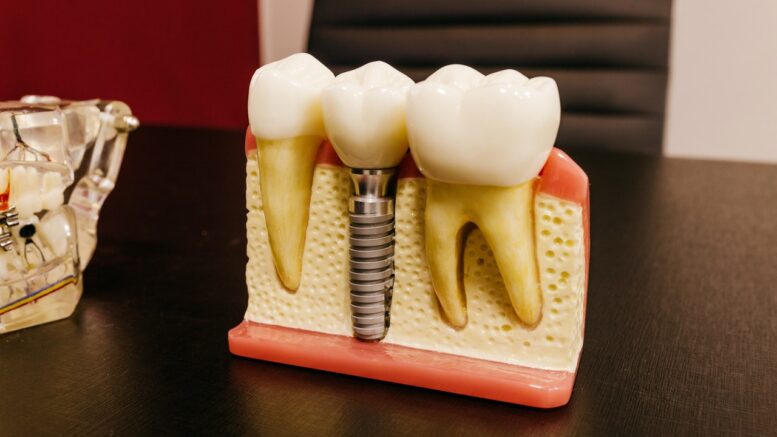Are you considering dental implants? It’s important to gather all the essential information before deciding. Although dental implants are a widely used and successful method for replacing missing teeth, they do carry certain risks – as with any medical procedure.
That’s why this article is here to provide an overview of the dental implant process, factors to keep in mind before opting for dental implants, the significance of consulting a qualified dental implant specialist, ways to prevent complications of dental implants and maintain oral hygiene, and also address some common misconceptions and concerns about dental implants.
Understanding the Dental Implant Procedure
The dental implant procedure consists of surgically placing a titanium post into the jawbone which then serves as a substitute for the tooth root. This post acts as a strong foundation for the dental crown that will be added later on. To ensure the patient’s comfort, the procedure is typically carried out under local anesthesia, minimizing any discomfort.
Following the placement of the implant, a healing period of several months is necessary to allow the implant to fuse with the jawbone through a process known as osseointegration. Once the implant has fully integrated, an abutment is connected to the post, and a custom-made dental crown is then placed on top, effectively completing the restoration.
Factors to Consider Before Getting Dental Implants
There are a number of things to think about before deciding to get dental implants. It’s essential to have a comprehensive dental check-up to determine if you’re a suitable candidate for the procedure. Your dentist will carefully assess the condition of your jawbone, gums and overall oral health to ensure a successful outcome. There are a few factors that you should also consider:
- Your oral health: It is important to have good oral health before getting dental implants. This includes having healthy gums and sufficient bone density in the jaw to support the implant.
- Your commitment to oral hygiene: Dental implants require regular oral hygiene practices, including brushing, flossing and regular dental check-ups. It is important to be committed to maintaining good oral hygiene to ensure the longevity of the implants.
- The long-term benefits: Dental implants offer long-term benefits, including improved oral function, aesthetics and durability. However, it is important to have realistic expectations and understand the potential risks and complications associated with the procedure.
In addition to this, it is vital to have a discussion about your medical history with your dentist since certain medical conditions, such as uncontrolled diabetes or autoimmune disorders, can potentially impact the success of the implant procedure. Furthermore, smoking can hinder the healing process, so it is highly recommended to quit smoking prior to undergoing dental implant surgery.
Financial considerations should also be kept in mind. Dental implants can be a significant investment, which makes it important to have a conversation about the cost and available payment options with your dentist beforehand. While dental insurance may not cover the entire cost of the procedure, some plans do offer partial coverage.
Preventing Infections and Maintaining Oral Hygiene
Taking care of your dental implants is absolutely essential for their long-term success. Just like your natural teeth, implants need to be brushed and flossed regularly to keep plaque and gum disease at bay. Your dentist will give you specific instructions on how to properly care for your implants. You should:
- Brush and floss regularly
- Use an antimicrobial mouthwash
- Avoid smoking and excessive alcohol consumption
- Be mindful of your diet
- Protect your implants during physical activities
But that’s not all! Alongside your regular oral hygiene routine, it’s crucial to schedule regular check-ups with your dentist. These appointments allow your dentist to keep a close eye on the health of your implants and address any potential issues before they escalate.
Furthermore, it’s vital to stay vigilant and recognize the signs of infection, such as swelling, pain or discharge around the implant site. If you notice any of these symptoms, don’t hesitate to reach out to your dentist immediately for evaluation and treatment. Your oral health is worth every effort.
Shedding a Light on Common Concerns
There are several common concerns and misconceptions surrounding dental implants. One of the most common concerns is the pain associated with the procedure. While some discomfort is to be expected during the healing process, the procedure itself is typically painless due to the use of local anesthesia.
Another misconception is that dental implants are not suitable for older adults. In reality, age is not a limiting factor for dental implant candidacy. As long as you have good overall health and sufficient jawbone density, you can benefit from dental implants regardless of your age.
Some individuals worry about the durability of dental implants. Taking good care of your dental implants and ensuring regular maintenance can result in them lasting a lifetime. They are designed to be a permanent solution for missing teeth and offer superior stability and functionality compared to other tooth replacement options.
